Tim Cushing
Players, Haters in the House: Weakling Spikes the Mashup Punchbowl
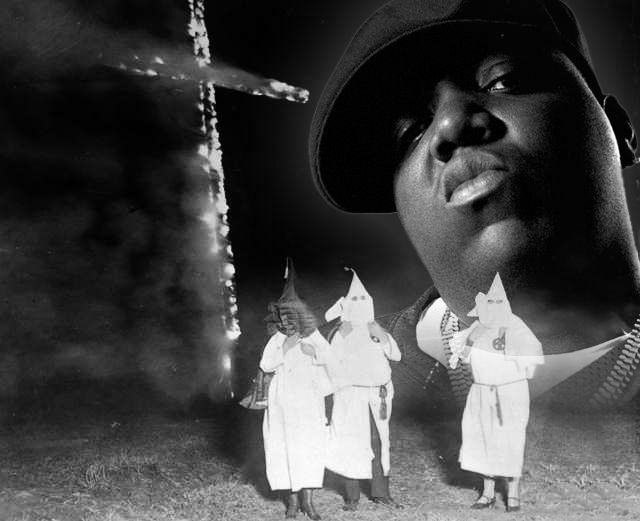
WARNING: The following mashup contains some language that most people would consider unsuitable. It’s not so much the words as it is the context. Proceed with caution (and headphones preferably, if at work).
Hearing this unlikely (and possibly unlikeable) “collaboration” featuring Notorious B.I.G.’s “Sky’s The Limit” paired up with samples and a reprehensible chorus courtesy of the equally reprehensible (and pseudonymous) Johnny Rebel*, one is tempted to ask themselves many questions, most prominently “Why?”
*If you’re wondering who or what a Johnny Rebel is, let me fill you in (follow the link above for even more info). Johnny Rebel is the alter ego of Cliff Trahan, a Cajun country musician who, during the tail-end of the desegregation fight in the South, decided (or was prompted) to write a string of singles celebrating bigotry. The boutique label, Reb Rebel, later compiled this string of singles (with jaunty, delightful names like Some Niggers Never Die (They Just Smell That Way), Nigger Nigger, Nigger-Hatin’ Me and of course, Who Likes a Nigger?, the last of which provides the dismaying chorus in this mashup) into an album entitled “For Segregationists Only,” just in case the song titles didn’t scare off desegregationists looking for a little traveling music. Despite all this, Johnny Rebel claims he “is not a racist.” He “just doesn’t like niggers.” Clear?
This isn’t any normal mashup, aimed towards the fans of the rap (or fans of racism, for that matter). It’s not aimed at enterprising DJs looking to throw a curveball at the dancefloor or towards mashup fans in general. It’s not the sort of track that someone sends around to friends for their appraisal and appreciation.
No, this is the kind of mashup that puts a person in the uncomfortable position of listening to a blatant racist periodically spew hate (which pretty much makes it the only mashup in this category). When the chorus arrives in its horribly amiable fashion, it’s like being kicked simultaneously in the brain and soul. After getting sideswiped by Weakling’s tainted bootleg, we’re definitely different people than we were three minutes ago but we’re still no closer to answering “Why?”
Here’s a few theories:
Juxtaposition as lulz
Trolling mashup fans with an “oh shit he did not just do that” sample.
Juxtaposition as statement (version 1)
Black man trumps white fool. Biggie was big. And rich. Johnny Rebel is still some backwater cracker with a headful of bad wiring and ignorance as long as the mighty Mississippi.
Juxtaposition as statement (version 2 — with complications)
Even slavery and racism can’t keep the black man down. Biggie rose from the hood to the top before his untimely death. Johnny Rebel lives on, all but forgotten. Of course, Rebel may be having the last laugh on this track, being of the mindset that the only good nigger is dead nigger. But it’s a hollow laugh. (Which is probably the only kind of laugh someone like Rebel possesses.)
Juxtaposition as a tale of two clichés
Black rapper. Violent, sexist, obsessed with money, drugs and power. White trash. Violent. Sexist. Racist. Obsessed with whites up and blacks down. Two forms of self-destructive ignorance. Crime pays vs. white bigotry.
Juxtaposition as a much larger statement on rap, racism, inherent violence and various other notions
Johnny Rebel’s chorus vocalizes gunshots as a casual threat to both blacks and the whites who treat them as equals. His “wop bop bam bam” acts as an eerie precursor to the casual celebration of violence (most often against other blacks) that drives mainstream rap. “Wop bop bam bam” is just a forerunner to M.I.A. triggering gunshot/cash register samples in “Paper Planes.” Offhand violence driven by cash enterprise/turf protection.
Juxtaposition as juxtaposition
The “blackest” music ever vs. the “whitest” music ever. Who wins? No one. Or maybe everyone does, drawing their own conclusions and walking away a different person than they were three minutes ago.
Six theories, all of which could be completely wrong, and still plenty of headspace left over to craft half a dozen more. But rather than let this devolve further into Tim Cushing’s Conspiracy Theory Generator and Overthinkery, why not just go right to the source?
Introducing the man behind the spiked (head)punch that is Biggie vs. Rebel, Weakling, who informed me that this track was originally part of bigger project entitled “South by South-west: 100 Years of Racial Tension in Music,” featuring various hip hop heroes rubbing sonic elbows with “bigoted white supremacist Nazi punk.” So, the kind of fun that can only be had by forcing people to play nice (via production magicks) who wouldn’t be caught dead in the same room together. (Or, more likely, someone in that room would be dead shortly thereafter):
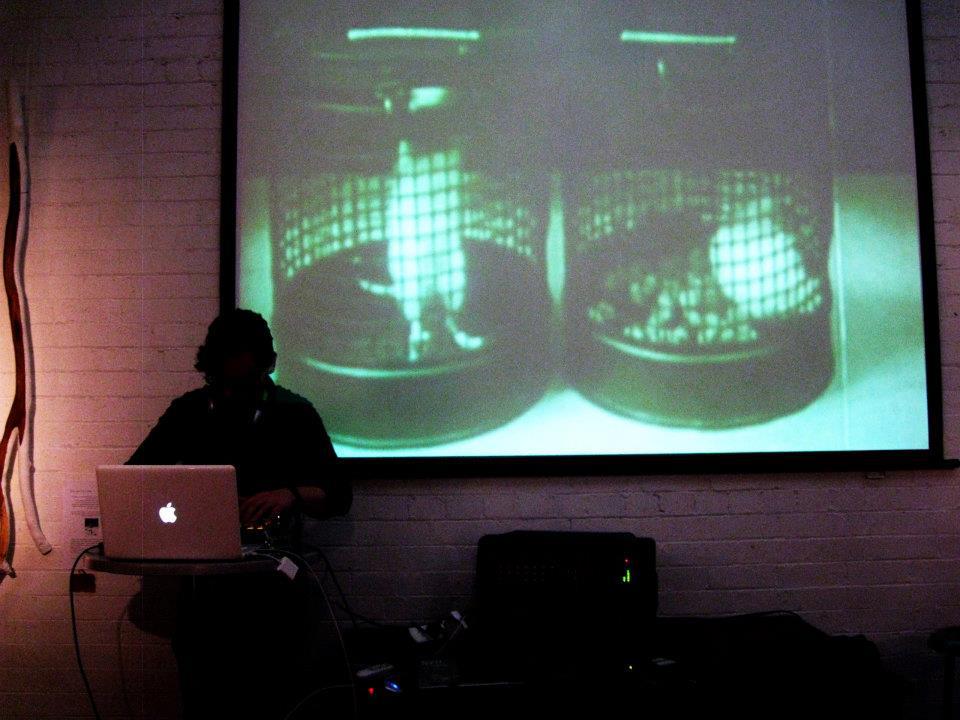
Weakling: I’m a front-end web designer/developer from Queensland. My job is my other passion to music. I’ve spent my whole life around computers which often makes me late for things.
As for this track itself, it’s quite the aural sucker-punch to lay on the average mashup fan. Speaking as one, we’ve come to expect some outrageous or hilarious juxtaposition (see also: Eminem vs. Lawrence Welk, Rage Against the Machine vs. Glenn Miller; Katy Perry vs. Joy Division) but are rarely (in fact, never in my experience) confronted with something as unexpectedly severe as this.
One minute you’re enjoying the masterful mix work, the next you’re trying to collect your jaw from the floor and your shattered brain from various places in your skull. It almost seems like the track should come with a disclaimer attached. Was any part of the creation of this track motivated by a desire to “troll” mashup fans, particularly their tendency to enjoy hip hop more once it’s attached to music that’s “safer” or “whiter”?
Like the ones you listed, mashups are awesome when the tracks come from polar opposites. One of the first mashups I played live mixed Khia’s “My Neck My Back,” Alexisonfire, Public Enemy, Bolt Thrower, a Yo Gabba Gabba song and a bunch of others. I played it at a family-friendly open mic night and there were a few kids in the front row. It didn’t go down as well as I imagined but I had a really great time.
“Sky’s the Limit” was produced to be pretty tongue-in-cheek. I just liked the idea of getting two artists who would never, ever work with each other into a track, even if Biggie wasn’t dead. Mashup music is usually pretty fun with guys like Girl Talk and Yacht Club DJs playing party mixes. I kinda wanted to ruin that and make something a bit uneasy.
How did you come across Johnny Rebel’s music? As far as I can tell, it’s not the sort of thing you just stumble upon without either accidentally or purposefully straying into the uglier parts of the web.
You definitely have to dig deep to find stuff like Johnny Rebel. Movies like Romper Stomper and American History X brought my attention to nazi punk. One scene in American History X, the bigger guy is singing “The White Man Marches On” by Johnny Rebel in his truck and it stuck with me. I illegally downloaded one of his albums (I’m not going to fuel his music career) and listened to it for a few weeks non-stop.
What’s your take on hip hop today in general? (lyrics, production, etc.) Are you a fan? Who of? Who could you do without?
There are some awesome hip-hop acts floating around these days. Some of my favourites are Death Grips, Busdriver, Skepta, Die Antwoord, Army of the Pharaohs, dälek and Mr. Muthafuckin’ eXquire. I’m also a big fan of instrumental stuff like Burial, Nosaj Thing and Daedulus. I don’t get the huge fuss over OFWGKTA. They’re not bad – I saw them when they came to Brisbane last but I don’t get the hype.
The production on Death Grip’s “Ex-Military” opened my eyes. It sounds like it was recorded under someone’s house with a webcam but it really works.
I find it interesting that the word “nigger” still holds so much power when spoken by someone who’s clearly a racist. From my own experience, I can listen to a hip hop artist use it 30 times in 4 minutes without it registering as anything heavier than a comma. But when Rebel’s voice breaks through with the chorus, it’s like suddenly being shoved off a cliff and falling into the ugly underbelly of America. For all the talk of “reclaiming” the word and robbing it of its power, hearing someone use the word with its original derogatory intention still hits hard. It exposes that subset of humanity that will never truly be gone: the hardcore racist.
And it’s not just that subset. There’s a strain that lays under the surface of everyday life. It’s not so much flat out racism as it is simple prejudice. On one of his albums, Chris Rock points this fact out: “There’s not a white person out there who would change places with me. And I’m rich!” It pretty much seems that being poor and white is still “better” than being rich and black. (Sorry. That’s not really a question. But feel free to add any commentary or just ignore my thinking out loud and head to the next question.)
I completely agree, great comment. The context Rebel uses the word in is so much more sinister and defamatory than any black rapper could. As a painfully white guy, I can’t even imagine uttering the word in public.
As an Australian, what’s your perception of racism in America? Does it seem to be a larger problem than Americans perceive it or is it mainly present in the outliers on the edges of normal society? Does Australia have the same problem (or perceived problem)?
I visited the US at the beginning of the year and every city seemed really multicultural and tolerant – race never seemed to be an issue. That’s just an outsider’s perspective though.
Until the 1970’s, Australia had what was called the White Australia Policy, basically an anti-immigration policy for everyone not white, Anglo-Saxon. Australia is an awesome country but there is still some deep, underlying racism in pockets but it’s kept on the down-low. I like to think each generation is ironing out these social problems though.
As for the unfinished project itself, are you attempting to make a larger statement than simply playing off the juxtaposition? I mean, basically, you’re creating a project with a very slim audience. It won’t appeal to hip hop fans, mashup fans or racists, which would leave you a mixture of the curious, the accidental listeners and people who like to think Big Thoughts about music. It’s kind of like announcing you’re going to hammer out an unfilmable screenplay.
You’re right, I can’t imagine the project has a big audience which is fine. It’s corny but everything I’ve released so far is for myself. Every track I’ve finished I’ve released online for free and plan to for all future tapes. I’m sure if I had some big, monetary investment in the project I’d think to make something more commercial but while I can make music in the comfort of home at any time of day/night, I’m going to make things that I like, regardless of who wants to hear it. As a designer, I work in commercial art and Weakling is an outlet for me to explore without thinking about how my work will sell.
Are you planning on trolling white power forums with links to the project? (Because you should absolutely do that…)
Haha, I wouldn’t even know where to start. Kkk.com? I just noticed Google suggests ‘White Powerade’ when you search ‘white power’. I’d better turn SafeSearch off and delve into the dark interweb.
Well, good luck with that (and let me know if you need help trolling). Thanks for your time.
Check out Weakling at his blog, on Facebook and his artist page at Triple J Unearthed. And by all means, swing by Bandcamp and check out his other electronica, all of which is 100% Johnny Rebel-free and, as he said, costs you absolutely $0 to get ahold of.
[P.S. Quick shoutout to DJ Godfather for the post title, which I lifted from one of his “hit” tracks…]
Is This Whitey’s Last Stand?
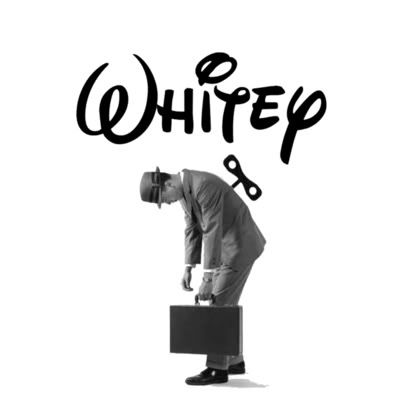
The first time I heard Whitey, I had recently immigrated to the US to escape the violence of my ‘home country’ by becoming an increasingly violent cabdriver in my new ‘country’…
Whitey. The name might ring a bell. Whitey Bulger, mobster. No relation. Whitey Ford, Hall of Fame pitcher. Enough wrong turns via the Google and, god forbid, you might find yourself listening to Everlast’s mook balladry.
These guys are not our guy. This particular Whitey is London native and a purveyor of a distinctive brand of electro-rock, one that dispenses with all the cliches that make electro-rock both easily identifiable and easily ignored. Whitey is a street-smart malcontent who still manages to wears his heart on his sleeve. And no matter how many times life knocks it off, he always stops to dust it off, straighten it out and carefully pin it right back on. It’s an act of defiance that goes hand-in-hand with his caustic tongue and eternal rejection of the status quo. Though his career has spanned nearly a decade, until recently, his output was limited to two albums, with two potential albums having been a.) leaked and subsequently scrapped and b.) scrapped and remade.
But you do know Whitey even if think you don’t. Here’s 22 million reason why:
If that’s not enough, Whitey’s music has appeared on the Gran Tourismo 5 soundtrack, as well as such notable TV shows as The Sopranos, Entourage and House. He’s done remixes for Bloc Party, Cut Copy, Soulwax and Kylie Minogue. You’ve heard Whitey even if you’ve never listened to Whitey. Here’s some listening to get you started:
THE LIGHT AT THE END OF THE TUNNEL IS A TRAIN
Whitey debuted with The Light at the End of the Tunnel is a Train, hitting the UK in 2004 and following up in the US in 2006 on Dim Mak Records. Pre-dating the electro-rock explosion by a few years, TLATEOFTTIAT showcases Whitey’s knack for banging out memorable tunes as well as his unique lyrical sensibilities, which combine healthy doses of world-weary cynicism with the bleeding heart of a never-say-die romantic. Much like Raymond Chandler’s iconic Philip Marlowe, the traits are complementary. The cynicism keeps him from being burned by the heartless while the romanticism inspires him to press forward.
The fatalism of the album title informs about half the songs, especially “Can’t Go Out, Can’t Stay In” and the title track. The cynicism pushes “Y.U.H.2.B.M.2” and “Halfway Gone” into darker territory than the music itself would suggest. It’s never simple cynicism for its own sake, but rather just an undeniable aspect of the whole, urged on by the restlessness of a heart and a mind that won’t stop wanting what they want, no matter what obstacles the world erects.
The music itself alternates between distorted electro-rock dustups and slower, bleaker pieces composed of minor chords and evocative noises. The title track throws Hawaiian balladry into the mix, along with the crackle of old vinyl and Lynchian tones of industrial doom but somehow still ends up a beautiful heartbreaker fit for slow dancing. “A Walk in the Dark” starts out with a menacing, low-slung buzz, strutting along until the 4 minute mark, where it dies off completely before returning as a low-key acoustic reprise, altering the tone from “threatening” to the “not-quite-benign tearful apologetics of an abusive lover.” A remarkable feat at twice the length, but Whitey pulls it off in slightly over 5 minutes.
THE HIATUS
Whitey’s follow-up was supposed to be Great Shakes. Due to be released in 2007, the promo version was leaked by someone on the US side of the music press. Once Whitey saw the album had been downloaded “10 to 12,000 times,” Great Shakes was pulled. In response to this, Whitey originally planned to release an album entitled Stay on the Outside, composed of reworked Great Shakes material and other originals.
Despite his solid debut and a load of fans constantly shouting “Genius!” at anyone who would listen (I’m one of them), Whitey found himself with some half-finished, half-leaked albums and no distributor. While fans bided their time at Youtube, a frustrated Whitey continued to crank out music and stick it in the vaults between trips to the States. Finally, in 2010, Whitey released a brand new album, Canned Laughter. What was originally intended to be a mix of Great Shakes reworks and originals morphed into an entirely new album, following the blueprint set down by TLATEOTTIAT, but taking an altogether darker path.
CANNED LAUGHTER
“The world is fucked,” Canned Laughter announces, as the narrator mounts a bold attempt to un-fuck it. Whitey rails against those who have remade the world in their own corrupted image while directing slightly-less-venomous tones at those treading the well-worn path of complacency.
Whitey’s well-directed cynicism is front-and-center during this 10-song set and a palpable sense of angry disgust runs through tracks like “Liars, Vipers, Jokes and Fakes” and “Times Up.” The heartbroken romantic remains but shifts into “wallflower mode.” It’s not all damaged psyches and bitterness, though. “Count Those Freaks” wryly updates “get off my lawn” for the club scene and “The Up Sound for Down People” celebrates “gutter aristocracy.” And if anyone was looking for PiL to update “This Is Not a Love Song,” “I Had a Wonderful Night (It Just Wasn’t This One)” hits all the right sentiments, pinning the heartfelt-in-the-worst-way lyrics to what would be a mawkish ballad if it wasn’t for the layer of acid coating the surface.
Whitey takes care to never let the message get in the way of the music. The tunes convey his anger and frustration without resorting to the easy shorthand of aggro guitar strafing or head-punching beats. Instead, Whitey lets little touches do the heavy lifting, like the ominous industrial noise that surrounds “Dinosaur” or the tortured calliope of “Send in the Clowns.” “Liars, Vipers, Jokes and Fakes” kicks off with (of all things) the good-time vibes of a Caribbean cruise, sporting an absurdly cheery calypso beat while the lyrics head in another direction entirely.
WE WON’T EAT
AND WE WON’T SLEEP
UNTIL WE GET THAT OIL BENEATH YOUR FEET.
WE NEED IT FOR OUR INTERNATIONAL PARTY.
AND IF YOU RAIN ON OUR PARADE
WE’LL TURN YOUR HOMES INTO YOUR GRAVES.
YOU DONT REFUSE THE INTERNATIONAL PARTY.
AND WE WILL NEVER GIVE UP.
AND WE WILL NEVER BACK OFF.
AND WE WILL NEVER BACK DOWN.
AND THERE ARE MILLIONS OF US.
THE LOST ALBUM – GREAT SHAKES VOL. 1 & VOL. 2
Taking albums out of order is seldom a good idea. The great news is that Great Shakes is no longer a “lost” album. Spread across two volumes, Great Shakes is Whitey’s strongest set of tunes. Taking these tracks off the market must have killed him.
“Cigarette.” The previously mentioned “Wrap It Up.” “Never Enough.” “G.I.R.L.” “Stay on the Outside.” “Do the Nothing.” “Individuals.” “The Gutter.” “Full of Dust.” All killer cuts. All endlessly hummable. All shot through with quotable lyrics. The upbeat tracks flat-out rock. The downbeat tracks punch you right in throat. Great Shakes makes perfect sense in its original setting as the album bridging the gap between his audacious debut and the unnerving Canned Laughter. The promise of TLATEOTTIAT is fulfilled completely.
[Here’s one of my all-time favorite Whitey tracks, coupled with my very favorite (and fan-made) video. The looping animation is a half-assed inside joke. Short story short: Whitey once threatened to ban people who used “LOL” or “OMG”, etc. from his MySpace page. TROLOLOLOL.]
The rhetorical question remains: would Canned Laughter be as resolutely dark if Great Shakes had been released as planned? It’s hard to see how it would. Most likely it would have been a bit more balanced, with a little more daylight breaking through the clouds. Life informs art and Whitey’s experiences during the long lapse between official releases were mostly unpleasant. Make no mistake, Canned Laughter is still a killer album but Great Shakes is a much more complete package.
THE FUTURE[?]
So, how does someone with as much talent as Whitey end up in limbo? How can someone whose music has been licensed by Grand Theft Auto and The Sopranos fall into the cracks? How can an artist who crafts immaculate hooks without sacrificing intelligence find himself “unmarketable,” or at the very least, “not marketable enough?”
All we’re left with is the vague statement that Whitey’s self-titled followup to Canned Laughter will (most likely) be released on Dim Mak at some unspecified date in the future. That, and a demo reel of sorts over at Youtube. The very promising career that began with The Light at the End of the Tunnel is a Train looks to be coming to an end, having been waylaid by the Great Shakes fiasco. It’s tough to build momentum when the situation insists on remaining out of your hands.
Whitey has intimated that this upcoming album may likely be his last. Pushing boulders uphill against the content firehose that is the internet takes its toll. What’s left of his creative energy is currently directed towards work on film soundtracks. A few trips to L.A. (including one where he met my dad!*) have at least given him another creative outlet, even if it means abandoning the Whitey brand.
[*This is the most inside of inside jokes. If Whitey reads this, he’ll laugh, and if so, I’m happy with that. If pressed, I’ll explain, because nothing makes jokes funnier than long explanations.]
That’s tough news to take as a fan, much less as an artist. The upside is that Great Shakes has finally seen the light of day and, if his Bandcamp offerings drum up enough sales, he’ll possibly be able to tour in support of the new album. If it ends up being Whitey’s farewell tour, so be it. Many artists have left the field for a multitude of reasons, but very few have left behind such a strong body of work. I’m hoping this isn’t the end, but if it is, Whitey’s leaving at the top of his game.
[One final track for you. If I’m called upon to offer up a requiem for Whitey, I can’t think of one more suited for the job than “Made of Night” which, at this point, isn’t available anywhere (unless you can find the nearly non-existent vinyl release and hope that it’s in NM condition). This is (still) my favorite Whitey track and one that I spent nearly an hour straight listening to after I stumbled across it the first time.]
FINAL FINE PRINT
Whitey is offering all of his previous releases with appended bonus tracks over at Bandcamp. Do head there and check them out. The Light at the End of the Tunnel is a Train features six (6!) additional tracks. Great Shakes Vol. 1 and Vol. 2 offer up 21 tracks between them, several of which have either a.) never been released or b.) never been released legitimately. At some point in the near future, Canned Laughter will be re-released with 4 additional tracks. Open up your ears (and hopefully, wallets) and help Whitey get a leg up in society for once. (Broad authorial wink.)
Defending the Artists’ Right to Troll the Crowd: Bradford Cox Edition
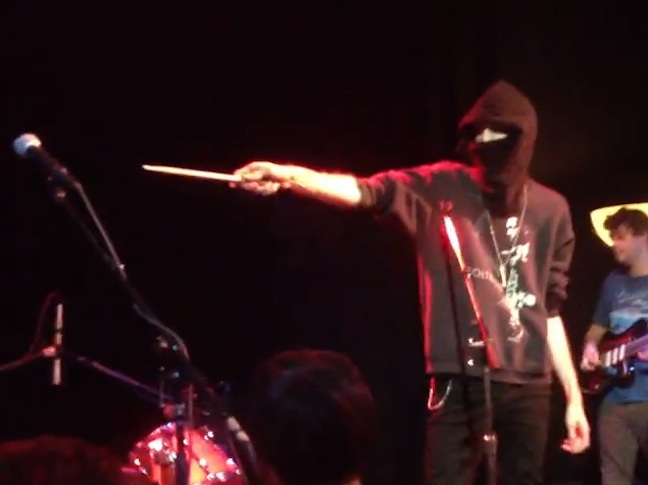
A unique situation for fans to be in, but not without precedent. Spinning the wayback machine all the way to 1965, a crowd of genteel folk fans found themselves on the receiving end of Robert Zimmerman’s distortion pedal, prompting shouts of “Judas!” and mercurial responses from the artist in question, delivered in his trademark drawling mumble: “I don’t believe you.”
Without attempting to make more than is actually there out of Cox’s statements aligning him with punk, the question is whether or not the artist “owes” the paying customers a coherent show in exchange for their time, attention, and possibly most important, money.
Punk was usually adversarial, but then again, so was the customer base. In exchange for not much money, punk fans got to beat up on each other (and occasionally, the artists) to the accompaniment of speedy, unschooled guitar rock. Also included in this exchange of money/blows was the possibility of exchanging invective/spit. Give-and-take. Fair play.
The post-punk world gave us Suicide and the Jesus and Mary Chain, both of whom infuriated customers with antagonistic and extremely noisy sets. Of course, both bands being new to a scene that didn’t even exist yet, it’s tough to claim that they screwed over the paying customers. Until these bands had a few dozen gigs under their belts, no one really knew what to expect.
The JAMC hid behind sunglasses and an opaque wall of feedback, deliberately disengaged from the audience and doing such “fun” things as playing the same half-finished song multiple times within the same half-hour. Suicide would engage the audience, but in a directly abrasive way. As the drum machine (set to “minimal”) pummeled the crowd, Alan Vega would take the show to the crowd, whether said crowd wanted the show taken to them. Sunglasses were also involved. Unsuspecting “fans” often found themselves face-to-face with Vega’s intimidating visage as it hurled “lyrics” at them. (At least up until the microphone is stolen, as it is in the clip here. Crowd turns on band. Band turned on crowd roughly 23 minutes ago.)
Cox’s situation isn’t exactly the same thing. No one’s truly expecting an Atlas Sound tour to feature huge amounts of audience trolling. At least, they weren’t before this. Now, every date past the Minneapolis gig is a crapshoot. Will you be getting a full show, filled with choice cuts from the new album and an entertaining crawl through the back catalog? Or will you find yourself listening to an aggressive epic-length exploration of Brownsville Station’s “Smoking in the Boys Room”? At this point the ticket price becomes a wager. Obviously not the prime situation for fans (much less promoters and venue owners).
There’s a bit of precedence for elaborate audience trolling as well. None other than venerated altrock institution Yo La Tengo once managed to turn the audience against it with its onstage antics. One tour featured a sort of sweepstakes wheel that audience members could spin to select what the band would be playing that night. Hidden among the more audience-pleasing selections was the unexpected: a Seinfeld episode.
A retroactively unlucky fan spun the wheel and set in motion one of the more bizarre moments in concert history. Yo La Tengo proceeded to act out the entire “Chinese Restaurant” episode of Seinfeld, much to the fans’ growing dismay. Of course, this was somewhat mitigated by the fact that the band played a full set of music afterward, but at the point that the episode was in play, There Was No Way of Knowing That. Fortunately, Yo La Tengo fans aren’t the rioting type, so the venue remained intact and consequently, a part of music history.
But Cox’s “stunt” (which doesn’t really seem to fit the descriptor) was in response to (there’s really no other word for it) heckling. Some audience member kept shouting a request for “My Sharona”. And Cox obliged. With maximum hostility. It’s one thing to attack the heckler. It’s quite another to punish the whole class for one person’s insubordination.
Of course, it can be argued (and I’m arguing it) that the artist doesn’t really owe the audience anything. Cox’s fans still got a show, even though that show was largely dependent on improvising the everliving hell out of a 4 minute Knack tune. This isn’t the same thing as the band showing up for two songs before deciding the monitors are crap or the guitarist is too drunk/high/nonexistent and then leaving the stage in a rather undignified huff, subjecting the venue to the (usually) destructive acts of frustrated patrons.
I don’t think the artist owes his or her fans anything beyond artistic expression in exchange for money when it comes to concerts. And I say this as a guy buying tickets, rather than an artist. Without meandering down pathways littered with words “muse” or “chasing the artistic dragon” (I totally made that last one up), I think in order for the artist to get the most out of themselves, this sort of implosion is occasionally necessary. Small comfort for paying fans, I’m sure, but in the long run, it will probably be rewarded with an explosion of output, often in unexpected directions. [OFFER NOT GUARANTEED. VOID WHERE PROHIBITED.]
The early adversarial days of punk rock and post-punk were necessities. The artists were in uncharted territory and determined to attack anything that resembled the complacency of the mainstream. It’s not as if that complacency has gone away. To stay on the edge, artists need to continually push the mass towards the center, leaving the alternate routes free of comfort. Cox dragging an entire crowd into a vindictive pile-on-by-proxy to deal with a solitary heckler feels like overkill, but being an artist means never half-assing it.
FUN FACT: Quentin Tarantino originally planned to use My Sharona to soundtrack the memorable pawn shop basement rape scene in Pulp Fiction, but the rights holders felt more comfortable with Winona Ryder dancing around with a Pringles can. Our loss. Tarantino noted that “My Sharona” has “a great butt-fucking beat.”
SPEAKING OF RE-PURPOSING MY SHARONA:
Here’s Richard Scanty, aka Scanty Sandwich, building a Big Beat monster out of a familiar drum loop. One of the also-rans of the Brighton scene, Richard Scanty opened for Fatboy Slim in Denver (with yours truly in attendance) and tore the roof off the place, at one point juggling two copies of Hardfloor’s acid house classic, “Acperience“. Never mind the fact that many talented people can juggle tracks on the ones-and-twos and instead marvel at the fact that this man, clad in a t-shirt I’d still love to buy that read “Born Scanty,” had two (2)[!!!] copies of the track on wax!
Klosterman vs. tUnE-yArDs vs. Collapse Board vs. Wikipedia
Or, Why Johnny Can’t Spell without Abusing His Caps Lock

Very recently mostly-esteemed music critic Chuck Klosterman took aim at tUnE-yArDs and the zeitgeist in general, cranking out an oddly restrained character assassination piece entitled “The Pitfalls of Indie Fame.” The central point of the article, that no one’s going to be listening to Tune-yards (I won’t be abusing my Shift key, if you don’t mind) a year from now, managed to get drowned out by the half-hearted bashing and the general feeling that Klosterman couldn’t even muster up the enthusiasm to truly take Tune-yards for a one-way ride out to an abandoned lot to bury it properly.
If this is Klosterman’s idea of “assassination,”, it’s not unlike attempting to off someone with a Nerf bat. Possible, yes. But man, your heart’s got to be in it. Chuck’s isn’t. Deadlier character assassination pieces usually don’t couch themselves in softened language or freely admit their ignorance of the subject matter. Klosterman does both, admitting he’s only listened to the album (w h o k i l l, henceforth referred to as “whokill,” [if referred to at all]) once and throwing around qualifiers like “suppose” and “possibly” and etc. to further hedge his hazy bets.
Scott Creney at Australian music blog Collapse Board rightly took Klosterman’s post to task, mocking the general half-assedness of the attack while also pointing out a grim undercurrent of sexism underlying Klosterman’s piece. Creney’s sentence-by-sentence breakdown of Klosterman’s article doesn’t get much better than this (shame it’s on page 1 of a 4-page post, but these things happen…)
I’m not really in a position to argue for (or against) the merits of tUnE-yArDs, simply because I’ve barely listened to w h o k i l l. Had it not won the Pazz & Jop poll, I might not have listened to it at all.
With all these disclaimers, I’m starting to wonder why Chuck bothered writing this fucking article in the first place.
[Full disclosure: I, like Klosterman, have barely listened to Tune-yards since being pointed in their/her direction by another post at Collapse Board (dealing with a genre called “Clank”). I gave Tune-yards a good, solid chance. I listened to one track (which I didn’t care for) and sought out a few more (at the greatest music site in the world — Youtube) before coming to the conclusion that this was Not For Me.
However, (and here’s a statement that will pain Scott Creney greatly) they do sound like the sort of thing a certain ex-girlfriend of mine would have enjoyed. Between the neo-hippie trappings, the world music beats and the goddamn ukulele, this would be right up her alley.
The closest I’ve been to this alley full of neo-hippies and world beats is attending shows by Banco de Gaia and Children of the Bong and finding myself attempting to enjoy some sequencer twiddling and sample firing while being surrounded by exactly the sort of neo-hippies I normally avoid, thus relegating me to spending the rest of my evening glaring darkly at the heavily-scented (and sandaled) crowd, all of whom were busily harshing my mellow by so very clearly enjoying theirs.]
If Creney peaks early with his dismantling, the same can be said for Klosterman’s kid-glove hit piece. The most interesting of his listed rationalizations is his first one, from which some sort of sexism can be inferred (should it not exist already), but more bizarrely a claim is made about Tune-yards’ Wikipedia entry’s odd lack of female pronouns.
1. tUnE-yArDs is essentially one person, a somewhat androgynous American woman named Merrill Garbus. This is her second album. I get the sense that asexuality is part of her hippie aesthetic, because I just looked at the tUnE-yArDs Wikipedia page and noticed that the wiki writer put a lot of effort into never using gender-specific pronouns.
For someone (or more likely, a group of someones) to have put together a Wikipedia entry in this fashion would be extremely odd, seeing as Wiki’s relentless and joyless enforcers don’t allow such non-gender-specific dickery. Assuming Merrill Garbus isn’t updating her own Wikipedia page (clearly Against The Rules), then who out there in the internet would feel Garbus needed to rendered completely sexless for posterity?
The answer is: no one.
The language on the Tune-yards Wikipedia page is no more stilted than anything else clearly written by fans and rewritten by academics (or aspiring comment section mods). There are two distinct “hers” on the page and it doesn’t seem like more are needed.
My first thought was that the page had been altered since Klosterman’s piece ran. Nope, nothing there. In fact, going all the way back to the initial entry, one can find a “her” placed right in the middle of a sentence where one would reasonably expect a pronoun to be used:
In July, 2009 it was revealed that Tune-Yards had signed to the prestigious British label, 4AD and would release a full release of her debut record ”Bird-Brains” on November 16, 2009.
Further research shows that, while various adjustments and expansions have been made, the removal of feminine pronouns wasn’t one of them. What it DOES show in the history is, however, somewhat amusing. Well before Tune-yards was showing up on the radar, certain meandering Youtube commenters were rewriting history in their own image. This from January 17, 2010:
New England-based musician Merrill “Garbage-Mouth” Garbus.
There’s plenty more hate (Origin = [[New England]], [[United States]] and needs to go back there) and the deletion of someone’s full-scale fan-blog-in-progress, but the real comedy lies within the endless battle between the contributors and the mods over the usage of excess spacing (w h o k i l l) and randomly capitalized letters, which commenced on May 4th (moved Tune-Yards to TUnE-YaRdS: The preferred spelling popular usage, in references, and by the subject itself) and raged on into history, with clashes on May 18th, May 26th and 27th. A few minor skirmishes resulted in a January 1st proclamation (apparently knowledge never sleeps/parties/gets hungover) that “normal spelling and capitalization rules would apply, rather than the artist’s choice” (this being Wikipedia, not wiKi-PeDia, after all). The proclamation was promptly ignored, leading up to one of the finest damning sentences composed on a Wikipedia history page:
Wikipedia is an encyclopedia, not a hipster music website. write as you would pronounce, so who kill (dropping the caps is fine) and Tune-Yards (not that eyesore she uses)
Game. Set. Match. Please collect your broken shift keys and spacebars and gTfO.
So, while Tune-yards’ fans may be undyingly protective of their odd spacing and StudlyCaps, they seem less than concerned with shrouding Merrill Garbus’ sexuality from bearded music critics out there in internet-land (more specifically — Grantland).
Beyond the thing that isn’t actually happening at Wikipedia, what other reasons does Klosterman offer in support of his “here today, mocked tomorrow” hypothesis?
The only thing I knew was that the words “Tune Yards” were spelled “tUnE-yArDs,” which seemed like reason enough to ignore it (not a good reason, but a reason nonetheless).
It’s not a “good” reason, but it’s certainly acceptable. After all, I’ll never be able to listen to Vampire Weekend after seeing this photo of them playing live. Superficial, yes. But COME ON.
Garbus was formerly employed as a puppeteer, if that sort of thing matters to you.
Sadly, I think it does. If the words “puppeteer” and “ukulele player” are not followed shortly by “children’s television host,” then the world has gone off its moorings and needs a hard reset.
w h o k i l l is not avant-garde, but it is experimental.
And has extra spaces. Let’s not forget about that. See also: reasons to ignore it (above).
But all sneering punctiliousness aside, Klosterman does have a point: Tune-yards is altogether Too Much. It won’t last because it can’t possibly last. It all carries the heavy scent of pretentiousness and affectation even if none actually exists. The odd vocalizing. The hippie-meets-industrial aesthetic. The random capitalization and kerning issues. The goddamn ukulele.
Klosterman cites Arrested Development as a comparable musical entity, one critically adored and hailed as the savior of rap from the thugs, but just try listening to them now without cringing a bit. Try just looking at the album cover without being tempted to avert your eyes and shout , “What in the hell is that? An interpretative dance troupe without a bus pass? An umbrella??!??!?”
You can have a few of these elements and still be ok. But concentrated amounts of “left field” has a strange way of making you an unwelcome house guest in a very short matter of time. The further out the artist is, the sooner they get dropped as former fans make their way back to more centrally-located amusements.
Beavis & Butthead: Tastemakers
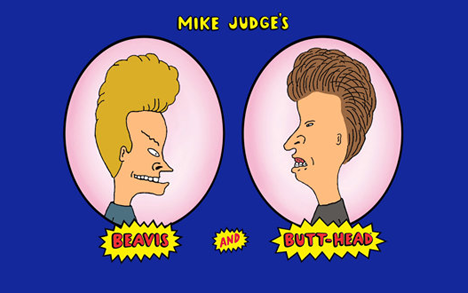
Presumably channeling Mike Judge’s musical tastes, Beavis and Butthead provided US viewers with the first glimpses of several well-below-the-radar bands including the Dead Milkmen, the Cramps, Daisy Chainsaw, the Plasmatics, Dread Zeppelin, Ethyl Meatplow, My Life with the Thrill Kill Kult, Shonen Knife, the Dylans, Napalm Death, Circle Jerks, the Revolting Cocks, Pop Will Eat Itself, Fatima Mansions and Six Finger Satellite, just to name a few.
But for me, two never-before-seen groups stood out from the crowded pack of snot-nosed punks, industrial offshoots, cult favorites and metallic punishers.
Army of Lovers – Crucified
Army of Lovers may have been huge in Europe but they never had a chance over here in the US. It’s probably safe to say that Americans were never going to embrace a group that took ABBA’s disco tendencies and hitched their ultra-melodic fluff to an uber-camp mixture of gay and religious iconography. This particular Army was dedicated to taking music completely over the top, leaving any sort of subtlety behind for the Pet Shop Boys of the world.
“Over the top” is an understatement. It’s as if Army of Lovers reached the “top” they wished to climb over and found its lack of altitude disappointing. Setting up a base camp (emphasis on that last word) near the peak, the Lovers erected a new top, piling pirate shirts and eyeliner on top of crucifixes and torn hymnals, adding Eurovision vamping to the whole mess before clambering stylishly to the new top and planting a flag made of suddenly discarded clothing (mainly pants) at the pinnacle.
While Beavis and Butthead were clearly not the target demographic, they were won over by occasional member La Camilla’s top-heavy charm. And while that aspect of the video was clearly eye-catching, I was sucked in more by the gaudy sacrilege of Crucified, which echoed the Jesus and Mary Chain’s desire to “die just like Jesus Christ,” replacing the black hole nihilism with something that could possibly be classified as a religious swoon. The JAMC were looking for the end. The Army of Lovers had already died multiple times, “crucified like their savior.” Throwing in a bit of tossed-off French (I cry I pray mon dieu) doesnt’ hurt.
Having grown up in an ultra-religious Protestant household, I found the whole experience oddly fascinating: disco-fied Europop baiting our Lord and Savior with a devastating accuracy that a million black metal bands could never hope to duplicate. The music made the message “safe” and the high camp delivery system added another layer of sinfulness to the whole picture. Gays and God have never gotten along, at least according to a majority of God’s self-appointed earthly mouthpieces.
Alien Sex Fiend – Now I’m Feeling Zombified
The second band which would have flown completely under my radar had Beavis and Butthead not rescued them from subjective obscurity is Alien Sex Fiend. ASF was a part of London’s influential Batcave scene, a breeding ground for dozens of goth rockers including Specimen, Bauhaus, Sex Gang Children, as well as non-goths like Robert Smith and Nick Cave.
Alien Sex Fiend’s epic Now I’m Feeling Zombified got the nod from B&B, primarily for its Alice Cooper-esque showmanship. Front man Nik Fiend’s aggressive use of eyeliner and pancake makeup made every contemporary hair metallist look even more ridiculous and the whole experience was not unlike stumbling into the wrong nightclub late at night and realizing that spending any length of time here might permanently alter your perspective on life/require use of unfamiliar drugs or “marital aids.” Disconcerting, but in an oh-fuck-let’s-see-where-this-is-going sort of way.
Alien Sex Fiend always stood out from the goth crowd with their use of spacy electronics and obvious love for barely double-entendre, AC/DC-level dirty jokes. (See also: Drive My Rocket, Stuff the Turkey, Burger Bar Baby) Despite traversing the same darkened alleys as Bauhaus, etc., ASF was equally influenced by the filthy psychobilly of the Cramps and the soaring, searing sounds of Hawkwind.
Now I’m Feeling Zombified is taken from Alien Sex Fiend’s glorious, sprawling, epic mess of an album, 1990’s Curse. Its opening track, the undeniably “goth” Katch 22 is a jackbooted epic (in four parts, no less) but it hardly sets the tone for the rest of the album, which veers from psychotic guitar rock (Eat! Eat! Eat!, I Think I) to murky psychedelia (Ain’t Got Time to Bleed) to tossed off dalliances (the 20-second promo Radio Jimi, Dali-isms) while still finding time to drop in goth epics like the track in question and other reminders that, yes, ASF is goth (Stress). They even find time for a cover of The Cramps’ Mystery Plane, recasting the original’s jangling blues shuffle as an expansive space rocker, emphasizing the timeslip of the “meanwhile the world slows/mad daddy drives a ufo” line.
So, after too many years, and entirely too many words, I’m making amends. Who knew a couple of moronic teenagers could open the door to new musical possibilities? Certainly they had no intention of helping anybody, but the end result is clear: Beavis and Butthead influenced my music tastes more than anything put into heavy rotation by their hosting network.
Recommended: The Mashups Post
Hey, kids (and by “kids,” I of course mean mostly adults of all ages), do you like mashups?
(Oh. You don’t. Well, calm down for a moment and read this.)
Now that we’re all on the same page, may I present to you a couple of new-ish, full-length, ridiculously enjoyable mashup albums.
The Abrahammer – How Dubstep Music Destroyed My Life
First off, we’ll be traveling (in a very non-literal fashion) to Columbus, OH, where a successor to Girl Talk‘s shirtless and sweaty crown has cranked out what is quite possibly the mashup album of the year (GT division), How Dubstep Music Destroyed My Life. Much like GT, The Abrahammer presents a densely packed cross section of rap and rock radio hits (152 unique samples in all), but adds even more with the brilliant deployment of TV theme songs and even tosses the geeks an 8-bit bone in the form of a toughened up (via Spank Rock/Amanda Blank and some digitally tricked out Funky Drummer samples) Legend of Zelda theme to kick off “Stray Dog and the Legend of the Best.”
The whole album is shot-through with OMFG ass-kicking moments. Dr. Dre vs. Guns n’ Roses kicking over at the drop of a hi-hat into Audio Two vs. Steve Miller on “Gangster of Success”. The Office Theme fading into A-ha as Major Lazer gives way to the Brazilian Girls and Gucci Mane on “Hold the Right to Spin”. Archie spitting venom over one of the greatest riffs of all time before suddenly spinning the dial over to Devo’s spastic funk and Bun B’s ode to drank on “Back In It”. The entirety of “I Usually Drop It Like This”.
There’s nowhere to go but up, seeing as this is The Abrahammer’s debut. You can pick up the whole thing here, in exchange for a simple appreciative tweet or a Facebook “Like,” both of which he has fully earned.
The Abrahammer – “Stray Dog and the Legend of the Best”
Wugazi – 13 Chambers
Still staying in the Midwest, we now head to Minneapolis, MN, home of Prince Rogers Nelson and several underachieving sports teams. Wugazi is the end result of a year’s worth of cutting up every Wu-Tang acapella and Fugazi riff Cecil Otter and Swiss Andy could get their creative hands on.
Following the greyprint left behind by DJ Dangermouse on his road to eventual superstardom, Wugazi refines the mashup process to one set of vocalists and one set of instrumentals. Fugazi, while not being an obvious choice for an unwitting accomplice, turns out to be a great one. There aren’t too many post-hardcore, post-punk, post-whatever bands out there that rely on their rhythm section quite as much as Fugazi does. (Need more evidence on Fugazi’s love for drums and bass? Check out former Fugazi drummer Brendan Canty’s side project Girls Against Boys, which featured a thunderous duo of bass players. [Much in the way Ned’s Atomic Dustbin did, but only without the {seemingly} novelty aspect. Of course, the Neds did it first, which may make them the standard bearer. All I know is that I prefer GVSB to NAB, hence the previous several sentences.*])
*SCL – Standard Critic’s License, Subsection B, Part 1.(b). “Subjective tastes can (and should) be used to revise musical history as needed.”
While not every track works quite as well as the tracks that work, the ratio of great-to-meh is incredibly high. Once again, the entry free is all of 0, no matter which currency you choose to not spend. Go at it track by track via Wugazi’s Soundcloud page or take a shot at the whole thing with this handy download link.
Wugazi – “Killa Hill”:
Wugazi – “Shame on Blue”:
Recommended: wavepool abortion
From damn near out of nowhere (well, Russia actually) comes wavepool abortion (non-capitalization required), an exhilarating wreck of a band that has neither the interest or patience in, say, “building sound sculptures” or “rewarding repeated listening.”
The Russian duo keep the antagonistic spirit of rock alive, in all its celebratory give-a-fuck-ness. This is addition by subtraction, a reductionist equation that hands your ass to you and tosses you out of the sweaty corner dive, covered in alcohol fumes and (mostly) your own blood. The kind of music that used to be whipped up by teenagers with permanently sunken eyes and garages full of amplifiers. The kind of rock that crawls into bed after dawn and can’t get up before 2 pm, staggering back into existence slightly before dusk, looking like a million bucks, if a million bucks dressed in second-hand leather and was badly in need of a hepatitis shot.
The Second Coming of College Rock: Nu-Gaze Edition
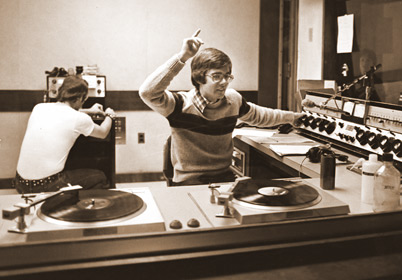
Presented for your consideration today: two fine New Bands whose aural tendencies echo the past, specifically that magical decade or so stretching from 1985-1995, when College Rock was actually a Thing. Good times, those what with talented and possibly drugged up students spinning everything under the sun that would never see the light of day on Top 40 radio.
Jangly arch-country from Camper Van Beethoven rubbing musical elbows with imported British takeover applicants The Charlatans UK (the appended UK gives it away). But first and foremost, atmospheric shoegazer epics drifted across the lower ends of the FM dial, carried by sparse megawattage that nearly allowed the signal to escape the surrounding parking lot.
This was before College Rock morphed into Alternative Rock (aided by MTV), which soon transformed (via the arrival of Nirvana and about a million bandwagon-jumping A&R men) into various shades of grunge, which a half-decade later got drunk and passed out in tattoo shop, awaking only to find itself the inadvertent caretaker of Helmet and Dr. Dre. Once it was discovered that talent skips a generation, this malformed child was christened “Nu-Rock” and abandoned in the care of a million frat boys, each of whom assumed growly yelling was a viable form of artistic expression.
BUT! These two tracks have nothing to do with a decade-long run of strangely earnest guitar wrangling in which louder always = better and melodies were something for the girls to enjoy along with their roofie-laced drinks. These two tracks bring back the “alt” in “altrock,” summoning up the swirling, hazy guitar anti-heroics of a short generation of pedal-pushing geniuses who operated under such unlikely names as My Bloody Valentine, Yo La Tengo, Catherine Wheel and Sonic Youth.
Your Band Name v. Google, Featuring Belong
New Orleans ambient drone duo Belong showed up out of nowhere with the 2009 vinyl re-pressing of October Language, an album recorded in 2004 and previously released in 2006. A followup album (Common Era) was released earlier this year. Not bad for a group that’s been around since 2002 and whose Allmusic bio refers to a followup album being due sometime in 2007.
Perhaps the glacial pace of Belong’s release schedule has something to do with the glacial pace of the music itself. “Late Night”, a Syd Barrett cover, coasts along at a beatless pace that redefines “languorous.” (No. Really.)
lan guour ous (adj.) – dreamy: lacking spirit or liveliness; “a lackadaisical attempt”; “a languid mood”; “a languid wave of the hand”; “a hot languorous afternoon”
1. See: Belong – Late Night
2. See also: These guys, whose 1995 album A Stable Reference defined languorous up until sometime between 2006 and 2009 (depending on which version of October Language you picked up), at which point Belong stole the definition away in broad dusklight under the cover of the space between the notes..
3. See also also: Low, whose pace is so languorous that time slows perceptibly during live appearances, rendering analog clocks unusable and a number of their fans late for work.
It’s a thing of gauzy, womblike beauty. The vocals fade in and out of the background (which is also the foreground, apparently). The track itself is something you experience more than you hear. It takes concentration to get everything out of it, but it’s well worth the effort, especially as it heads towards a muted roaring crescendo. (I realize that phrase seems to make no sense whatsoever, but LISTEN TO THE TRACK.)
Now, if your interest is peaked, head right over to Google and search up a storm. Thanks to a pile of writeups from some influential music blogs, Belong’s various pages have risen towards the top of the listings, resting comfortably between a stack of dictionaries. However, things haven’t improved much on the image side. Google doesn’t read minds (still in closed beta) so sorting by relevance is about as useful as sorting by dartboard.
Now, if you’ve decided to name your band after a common English word, you should know you’re engaging in a uphill battle for SEO hearts and minds. Of course, you could just go another direction and claim popular profanities for yourself, thus ensuring that every venue will now have to invest in asterisks in order to display your edited band name on the marquee. See also: Fuck Buttons, Holy Fuck, Fucked Up, Fukkk Offf, That Fucking Tank, The Fucking Eagles, etc.
Back before they took off, there was no better way to see if you’d forgotten to turn Safesearch back on than aquick image search for Fuck Buttons. Of course, now that they’ve become one of the more prominent Fuck groups, the natural progression of organic SEO has filled the search results with images off two guys assaulting a table full of electronics, rather than various orifices being assaulted by various appendages.
But what if you’re not as popular as the Fuck Buttons? What happens if your band name keeps unfortunate company, image-wise? Consider Nashville’s finest (only?) drag/witch house group, Party Trash. If you’re looking for some “relevance” from the image search, well… good luck. If you just needed an excuse to eyeballyoung party fiends in various states of disrepair/disrobement (now officially a word!), “Party Trash” is all you need to know. And that’s with Safesearch on.
Speaking of witch house, what if you’re knee deep in triangle cultists with names like GuMMy†Be▲R! andℑ⊇≥◊≤⊆ℜ and †‡† and other Unicode horrors? Bad news, surfers. Google has no idea what you’re looking for.
So between the witch housers who don’t want to be found, the drone rockers who like to hang with Merriam (and Webster –alternating Tuesdays) and the others who turn your office computer into an inadvertent Bacchanalian slide show, what’s Mr/Mrs/Ms Internet to do?
Go to a trusted source. [Insert self-promotional link to website here.]
Oh, but before you go, take a listen to this track from Belong’s latest LP, which shows the pair up to their old tricks, only faster, louder, harder and more melodic. If “Last Night” is a lullaby heard through a wall, “Perfect Life” is the daunting leap into a frigid, rushing river without ever escaping the noose.
Jack Black + ICP and the Deftones + Witch House. If Anyone Opposes This Union…
So… this is a thing that happened…
For no discernible reason, Jack White has teamed up with the Insane Clown Posse and JEFF the Brotherhood to pay homage to the German affinity for all things anal[Editor’s note: Mozart’s “Leck Mich am Arsch”]. Since it’s been heavily reported and corroborated (and filmed), I’m relieved to note that this just wasn’t another fever dream resulting from an afternoon spent imbibing absinthe and pop rocks while filling out Mad Libs with the aid of a stack of Spin back issues.
While I can see ICP’s desire to work with actual artists, I’m more puzzled by White’s involvement. Perhaps the recent disbanding of the White Stripes has left him with an excess of free time, and lord knows there are only so many “interesting” mustaches you can grow. And I suppose JEFF the Brotherhood jumped at the chance to work with White but were (perhaps) not privy to all the details. (JTB walks into studio, sees ICP: “What the hell are you doing here? ICP: “Who the hell are you?”)
But, nonetheless, it has happened and there’s video proof. Enjoy?
And then there’s this:
Deftones‘ frontman Chino Moreno decides to throw his goatee into the ring and cranks out a witch house EP under the name †††. There’s nothing quite like an interloper insinuating himself into the genre du jour. This move will undoubtedly result in the unfortunately not-rare-enough double backfire as diehard Deftones fans reject this faster than a Canadian health care recipient’s body rejects a black market kidney. And the cool kids of death™ will have nothing to do with this nu-metal tourist.
See also: this statement from †‡† (a.k.a. Ritualz), who is upset that Moreno is stealing Unicode. The comment thread has clearly been given over to Deftones fans, whom I would gently like to remind that the band name is properly pronounced “Deft Ones.”


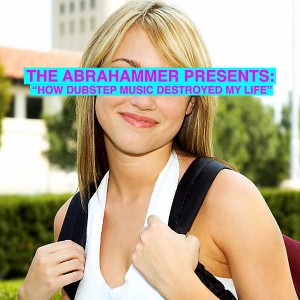
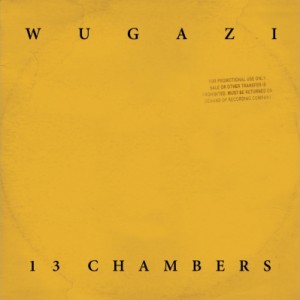

Connect